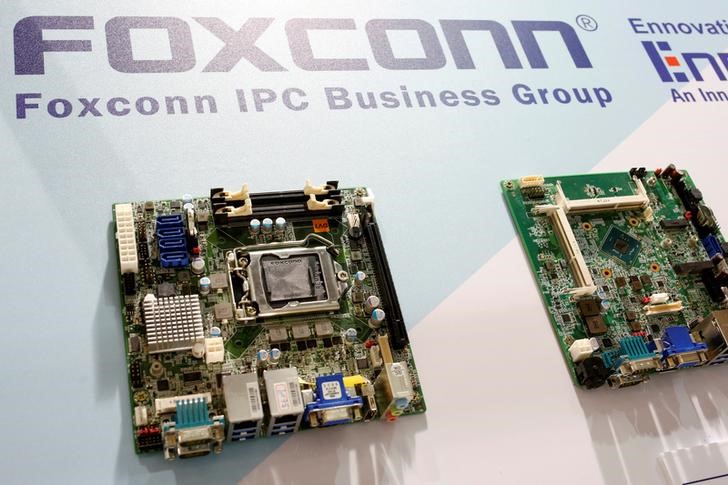Janux stock plunges after hours following mCRPC trial data
By Alessandro Albano
Investing.com - In the electric cars market, which will continue to gain in the coming years, Goldman Sachs pointed to a stock that could hold some excellent surprises for investors.
In a report, the investment bank introduced the stock in the broader context of the electric market, writing that the main trend in the industry is "outsourcing of EV manufacturing" which will increase as vehicles become ever more technology-driven.
The outsourcing trend cited by GS, which in market terms will touch $36 billion in 2025 and $144B in 2030 according to the bank's estimates, is a decisive step for EVs as it saves automakers from having to build supply chains from scratch, and enabling brands to penetrate markets where they lack manufacturing capacity.
For the investment giant, this trend will favor Taiwan-listed Hon Hai Precision (TW:2317), also known as Foxconn (TW:2354), the world’s largest electronics maker and the largest supplier of iPhones, known in recent times for the anti-COVID protests that have affected the main Apple (NASDAQ:AAPL) factory in China.
Goldman has upgraded the stock to Buy from its previous Neutral rating, with a target price of NT$134 ($4.40), representing an upside of nearly 28% from current prices. According to the "bull case" scenario, if EV deliveries continue to its expectations, the Taiwanese company's tp is $200, an upside then of 90%.
Compared to peers, in addition to technical know-how, Foxconn can count "on a global presence," with factories scattered in 24 different countries. "A key advantage," noted Goldman, as it fits "the automotive industry's requirements for localized production."
According to Goldman, that "can also ameliorate some macro uncertainties such as those related to Covid, geopolitical tensions, inflation."
In general, the Taiwanese giant's potential fits into a decidedly positive context for the electricity market. According to U.S. investment bank Cowen, EV market share will increase "21.5% in 2025 and 33.3% in 2030, up from its prior forecast of 9.6% and 25.7%, respectively."
According to Cowen analysts, "[t]he boost was driven largely by Tesla’s continued success, new vehicles from incumbent domestic manufacturers (OEMs) and continued strength in China and Europe."
